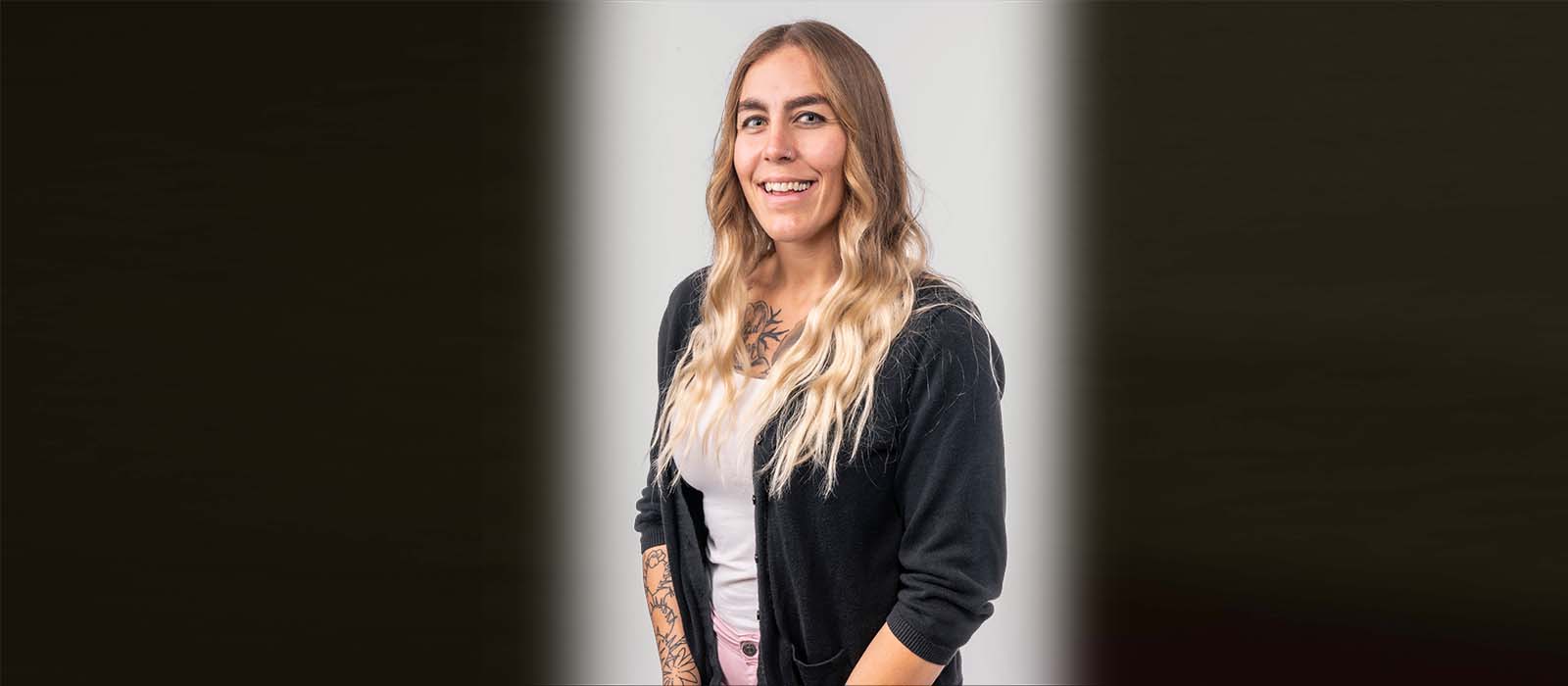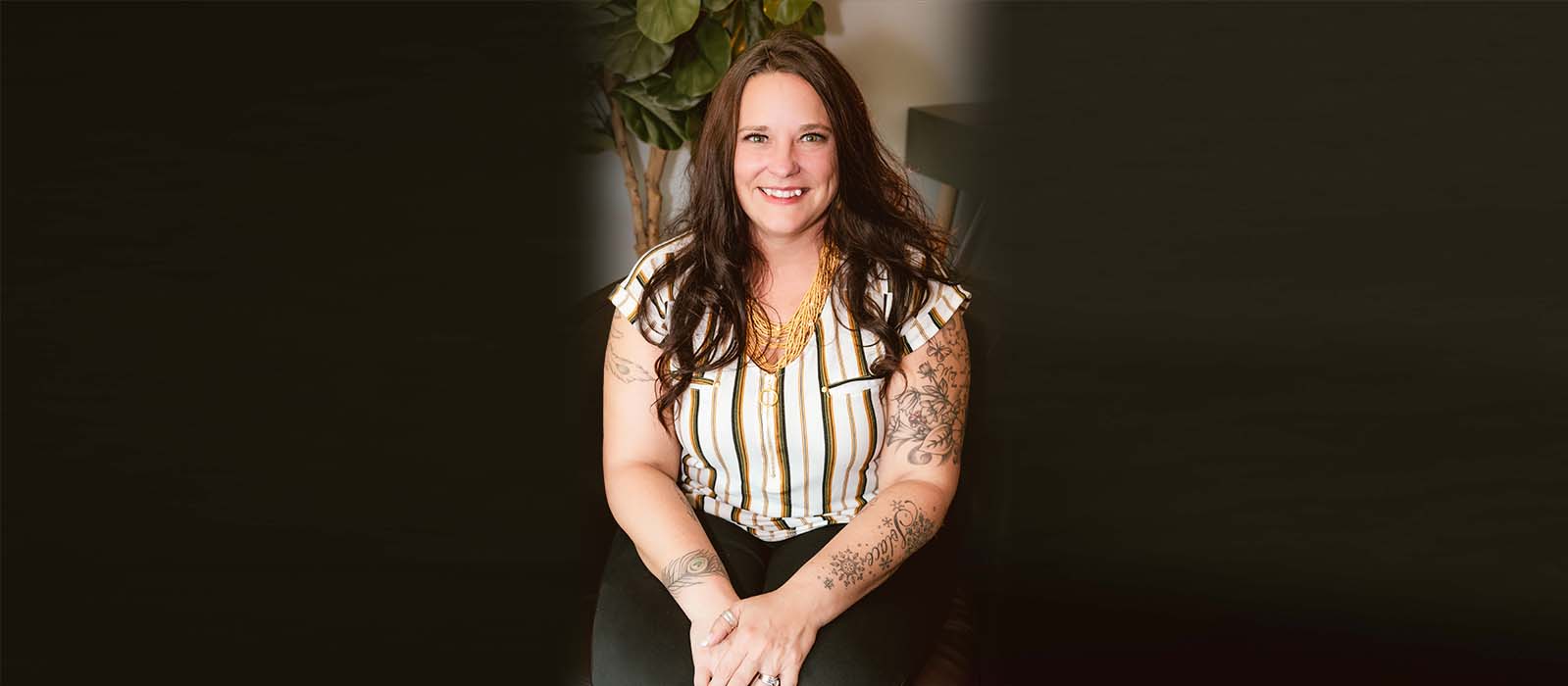What is the story related to mental health, suicide, and/or resilience that you’d like to share?
The moonlight reflected off the still water, and all I could think as I sat alone on the beach in the dark with a giant bottle of whiskey was, “I want to feel the kind of stillness and peace the moon and the water have. Maybe if I walk out into the water, let it consume me and not fight it, this unbearable pain in my chest and heart will be gone.” I was exhausted from carrying a heaviness in my chest, heart, and soul for most of my life.
Looking back, I can see this as a warning sign of the danger I would soon be in because a few short months after that night, I would try to end my life.
The pain I had been carrying from a lifetime of unresolved trauma was taking complete control over my life. I had tried everything to escape facing the excruciating feelings of worthlessness, abandonment, rejection, and agony associated with surviving every form of abuse possible over my 35 years of life. Nothing I tried was healthy or worked long-term, and many of the unhealthy coping skills led to more trauma created by my own choices. I used drugs and alcohol to numb the pain. I felt so unlovable I searched for validation in risky sexual behavior outside of my marriage. I overate, over-exercised, overworked, furthered my education, and tried to put on the mask of a perfect wife and mother. It was only a matter of time before all those vices stopped serving their numbing and escaping purpose and presented a whole other set of problems for me to face. The consequences of my poor coping skills became so great I only caused myself more pain and shame.
I was so good at hiding my suffering from almost everyone around me. Those who knew me from the outside didn’t see all the ugly I felt inside. Many people referred to me as a “success” given all the trauma I experienced. My perspective was the polar opposite. I knew I had always been a fighter, resourceful, and did what I needed to do to survive, but I was tired of just surviving life. I didn’t want to continue to feel that life was only about surviving; I wanted to feel internal peace, happiness, and joy, which had always eluded me. I didn’t have the energy to keep fighting to find it anymore. The force of the knockout punch from life was just around the corner and would be the lowest point in my life.
After chasing another hollow relationship with a man filled with false promises and no foundation, I had filed for divorce. The relationship would be my next quick fix to find the happiness I longed for, but I felt conflicted about walking away from a marriage with so much time invested in it. My soon-to-be ex-husband of 17 years saw me spiraling out of control.
On the night of my suicide attempt, I drank heavily and came home after the bars closed. I imagine in his frustration; my husband threatened to take full custody of the children. The thought of this was more than I could bear. In my eyes, they were the lifeline I had clung to for so long, and he just threatened to rip them away from me. Mid-fight, I walked into our bedroom and tried to end my life. He came back to our room, saw what I was doing, moved to stop me, and immediately called 911.
I don’t remember much after he called 911. But I do recall my four children standing in the doorway of their rooms, crying as they watched their mom roll down the hallway on a stretcher to the ambulance. Days later, when I woke up, I remember their father sitting beside my hospital bed clutching photos of our children and with tears streaming down his face begging me to live for them. The guilt and shame I carried from that night and what my ex-husband and children witnessed would haunt me for several years.
I had mixed feelings immediately following my suicide attempt. I was angry and embarrassed because I had failed to end my pain. I was worried about what people would think of me when they found out. I was in so much pain before, and it felt so much worse after I woke up. Surviving confirmed all the worst beliefs I had about myself. I couldn’t even get dying right. Yet, I didn’t necessarily want to die, but I desperately wanted the anguish to die. How was I going to pick myself up this time? Where do I go for help if I don’t want to die? My life felt so out of control with no idea how to gain some sense of composure, find a will to live and keep fighting.
It was a slow and tedious process to find the path of recovery that worked and fit for me. It was painful as hell to face all I had been trying to escape for so long, but it was the only way I wouldn’t find myself right back fighting myself for my life. I realized I needed to put as much, if not more effort, into healing from the inside out as I had in finding ways to avoid the pain.
Complex trauma meant complex treatment combinations. I needed medication to help stabilize my mood and emotions. I couldn’t deal with my PTSD and severe depression without helping my brain manage it with medication. I found a personal counselor who was well trained in complex trauma and met weekly for two years. Over time, my therapy planted the seed of hope that it might be possible to find my way out of the darkness and into the light. I started to dig deep to find out who I was, not who I told myself I was because of the violation’s others had committed against me. I had to learn to combat the negative self-talk that crept into my mind. Slowly, I gained strength, and my courage to keep facing the heartache increased.
Five years after my attempt, I felt strong enough to use my story to help others, and I began a career in suicide prevention and working with families who have lost a loved one to suicide. Never in a million years did I think everything I went through would serve a greater mission, and my story would be the driving force for a passion in letting others know they are not alone.
It has been eight years since I tried to take my life, and I still am mindful of my mental health. I still take medications, have weekly counseling sessions, learn about self-care, and enriching healthy relationships. I continue to learn about shame, release it, and discover who I am again as an empty nester and a loving wife. Life’s hardships can still be overwhelming to balance, but today I feel far more equipped to manage them in a healthy, productive way. There are still times where the residual effects of trauma rear their ugly head. I now know I am strong enough to thrive through those moments and am reassured, knowing they are just for a moment.
What resources have helped you to address this challenge?
At the time of my attempt, I did not feel like there were many resources aside from psychiatry, counseling, and close trusted friends. I utilized advice from my psychiatrist for medication recommendations to find the right combination of medicine that would make my PTSD and depression more manageable. I utilized a counselor who was very knowledgeable in trauma, leaned on my trusted friends, and explored my faith beliefs to find a church who offered other kinds of support groups. When I attempted there were no suicide attempt support groups to attend.
Based on your experience, how can we work to build resilience in ourselves, our loved ones, and in our communities to better face life’s challenges?
Yes, mental wellness is an individual’s responsibility, but it is not something to be done alone. As a community, we need to gather around and embrace those struggling and reinforce the reassurance no one has to go through hardships alone. Judgment serves only the purpose of shaming and guilt; it serves no positive purpose and causes additional harm. One may not understand the suffering an individual is going through, but a conversation built on the foundation of understanding, compassion, and empathy can make an enormous difference. It is everyone’s responsibility to be educated about suicide and offer support. It is dangerous to think, “this doesn’t or won’t affect me, so why get involved until it impacts my life?” Sadly, it can be too late by then. Take advantage of classes and workshops offered on how to hold the hard conversation about suicide. You could save a life by knowing how to address it properly and where to get someone, or yourself, help.
What is one thing related to mental health, suicide, or resilience that you wish everyone could understand?
Anyone can be affected by mental health challenges and suicide. Suicide does not care about social status, employment, income, education, race, gender, age, or religion.



